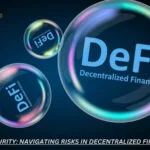At the Blockchain Association Policy Summit, influential members of the blockchain industry, lawmakers, regulators, and others gather to deliberate on the direction and regulation of blockchain technology. Blockchain technology is rapidly expanding across many industries. Therefore, lawmakers and business executives must collaborate on important regulations to encourage innovation while resolving privacy, security, and regulation concerns.
The Growing Importance of Blockchain Technology
From its humble beginnings in cryptocurrency, blockchain technology has expanded into a game-changing force across various sectors, such as healthcare, entertainment, supply chain management, and banking. It provides decentralized solutions that boost efficiency, lessen the likelihood of fraud, and make things more transparent. Blockchain has great promise, but adoption is slow due to regulatory uncertainty. That’s why conferences like the Blockchain Association Policy Summit are crucial.
Leaders in government and business will be able to discuss and work through these complicated issues during the summit. Its goal is to promote a well-rounded strategy for blockchain regulation by opening communication channels between businesses and government agencies; this strategy should promote innovation while safeguarding consumers and guaranteeing compliance.
Key Themes and Topics
Development of Central Bank Digital Currencies (CBDCs), the environmental impact of blockchain technology, consumer safety in decentralized finance (DeFi), and regulatory frameworks for blockchain are some of the important topics covered at the Blockchain Association Policy Summit. These issues stress the need for international cooperation and well-rounded legislation to encourage innovation without compromising safety or the environment.
Regulatory Frameworks for Blockchain
A well-defined blockchain regulation framework will be one of the main topics of discussion during the summit. The legal environment surrounding blockchain and cryptocurrencies is disjointed because different jurisdictions have adopted diverse regulation methods. The summit discusses ways nations can work together to establish unified rules that encourage innovation while safeguarding consumers from dangers like fraud and economic instability.
For example, in the United States, people still argue about whether cryptocurrencies should be considered commodities, securities, or something else entirely. The SEC, CFTC, and Treasury Department are the regulatory agencies that frequently send high-ranking officials to the conference to discuss these categories and their effects.
Decentralized Finance (DeFi) and Consumer Protection
One of the most important parts of the blockchain ecosystem is decentralized finance or DeFi. This allows people to lend, borrow, and trade money without going through intermediaries. There are hazards associated with DeFi, such as the possibility of fraud, cyberattacks, and regulatory gaps, but it also offers broader financial inclusion. To address these concerns, the Blockchain Association Policy Summit will investigate ways to incorporate consumer protection into DeFi networks without impeding innovation.
Environmental Impact of Blockchain Technology
Concern over blockchain’s effect on the environment has grown recently, especially concerning consensus processes based on proof-of-work (PoW), such as Bitcoin’s. There have been discussions over whether the industry should switch to more energy-efficient processes, such as proof-of-stake (PoS), because PoW mining uses much power. At the summit, attendees will hear from industry leaders on how to make blockchain technology more environmentally friendly and from lawmakers on how to promote green blockchain development.
Central Bank Digital Currencies (CBDCs)
Another important point of debate is the growing popularity of CBDCs or central bank digital currencies. Several national central banks are considering creating digital currency to improve payment systems and broaden access to financial services. Blockchain developers, economists, and central bankers may join the Blockchain Association Policy Summit to discuss how CBDCs will affect economies worldwide.
Global Collaboration on Blockchain Regulation
The very nature of blockchain technology makes it international in scope. So, international cooperation is essential to create a regulatory framework applicable in several countries. At the Blockchain Association Policy Summit, prominent figures from around the world will be speaking on panels about the difficulties and potential solutions to the problem of developing uniform global regulations for blockchain technology.
Notable Speakers and Participants
Blockchain developers and company entrepreneurs mingle with government officials and legal experts at the meeting. Prominent blockchain entrepreneurs, directors of regulatory agencies, legal professors, and officials from international organizations like the World Bank and the International Monetary Fund (IMF) are common names on the program of notable speakers.
These presenters provide fresh insights into the blockchain business’s problems and suggest ways to foster a more accommodating regulatory climate. Finding a happy medium between free-market innovation and consumer safeguards is a common theme in these conversations.
Outcomes and Recommendations
An important set of suggestions meant to influence blockchain policy and regulation in the future is always presented at the end of each Blockchain Association Policy Summit. In most cases, these suggestions aim to encourage better cooperation between public and private entities involved in blockchain technology development.
Some of the typical outcomes include:
- Calls for financial products and cryptocurrencies built on the blockchain to have more transparent and uniform regulatory frameworks.
- The author argues that to prevent competing legal frameworks, there has to be more global collaboration on blockchain legislation.
- Ideas for making blockchain projects more environmentally friendly and energy efficient, emphasising reducing their negative environmental effects.
- Standards for bolstering consumer safety in new industries like DeFi without limiting creativity.
- It talks about the need to balance privacy with regulatory compliance, with a focus on industries such as banking and insurance.
Further Read: Architecture of Blockchain: An Exhaustive Analysis of the Situation
In summary
One of the most influential events in blockchain policy and regulation is the Blockchain Association Policy Summit. The event brings together influential government, business, and regulation figures to discuss establishing rules that encourage innovation while protecting consumers, ensuring their safety, and promoting long-term sustainability. The findings and recommendations from the summit will play a crucial role in shaping the future of blockchain technology so that it benefits innovators and consumers equally as it undergoes further evolution and adoption.
FAQs
Q1. What is the purpose of the Blockchain Association Policy Summit?
The Blockchain Association Policy Summit aims to bring together industry leaders, policymakers, and regulators to discuss the future of blockchain technology and its regulatory environment. The goal is to align key policies that promote innovation, protect consumers, and address security, privacy, and sustainability concerns.
Q2. What are the main topics discussed at the summit?
Key topics include regulatory frameworks for blockchain and cryptocurrencies, decentralized finance (DeFi) and consumer protection, the environmental impact of blockchain technology, Central Bank Digital Currencies (CBDCs), and global collaboration on blockchain regulation.
Q3. Who typically participates in the Blockchain Association Policy Summit?
The summit attracts diverse participants, including government officials, legal experts, blockchain developers, startup founders, economists, and representatives. From international organizations like the International Monetary Fund (IMF) and the World Bank.
Q4. What are some of the key outcomes of the summit?
The summit typically concludes with recommendations aimed at shaping future blockchain regulations. These include proposals for clearer regulatory frameworks, calls for global collaboration. Suggestions for sustainable blockchain development and guidelines for improving consumer protection in emerging sectors like DeFi.












